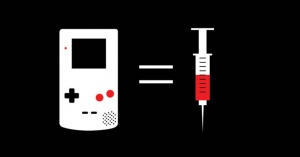User talk:Chijim
Game addiction is a mental disorder characterized by 1) intense feelings of pleasure and guilt when playing the game, 2) obsession about the game even when not playing, 3) interference with social, family, and work life, 4) anger or other signs of withdrawal when prevented from playing the game, and 5) an uncontrollable feeling to play the game. [1] It can apply to people who play either or both video and computer games.
Contents
Game addiction as a disorder
The APA's viewpoint
Game addiction is not recognized as a formal mental pathology in the DSM. In 2007, the American Psychiatric Association reviewed whether they should include "game addiction" as part of the DSM 2012, but rejected the idea, saying that there is not conclusive evidence to support that it is truly a mental disorder. [2]
The public viewpoint
Although not recognized as a formal disorder, there is an increasing amount of concern in the public about the negative effects of excessive gaming. There are also more researchers conducting surveys and experiments to find out more about the possible disorder.
Media Coverage
Although not recognized as a formal disorder, there is an increasing amount of concern in the public about the negative effects of excessive gaming. In 2011, the National Geographic Channel aired an episode of Taboo on the topic of addiction.
Research
Symptoms of game addiction
Diagnosis and treatment of game addiction
Notable game addiction incidents
See Also
References
- ↑ National Institute on Media and the Family (2007). "Mediawise Network Parent Guide to Video Game Addiction". Mediawise. http://www.scribd.com/doc/36493903/Video-Game-Addiction
- ↑ Tanner, Lindsey (22 June 2007). "Is video-game addiction a mental disorder?". Associated Press. http://www.msnbc.msn.com/id/19354827/
